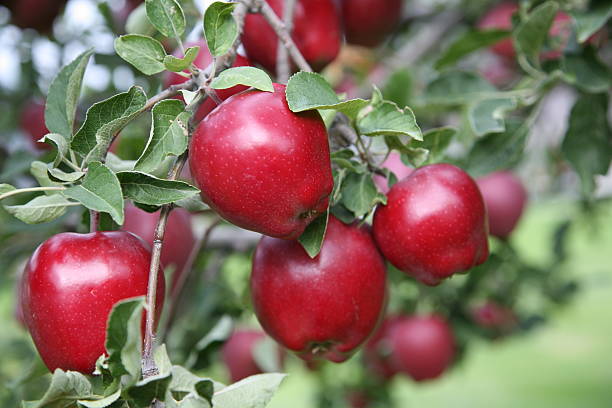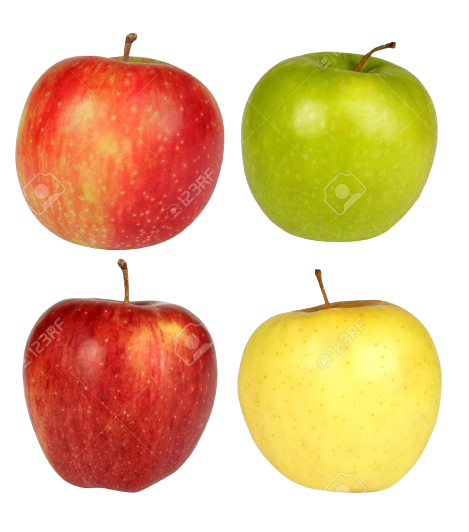Introduction
The apple, a globally renowned and ancient fruit, can be found in nearly every part of the world. Known scientifically as Malus domestica, it is part of the Rosaceae family. Apple cultivation has a history spanning thousands of years, with mentions in ancient texts and folklore.
History
The apple originated in Central Asia, particularly Kazakhstan. From there, it spread through various routes to Europe, the Middle East, and eventually America. Early apple cultivation is documented in ancient Egyptian, Greek, and Roman writings. During the Middle Ages, apples gained significant importance in Europe, leading to the introduction of various varieties over time.
Nutritional Information
Apples are nutrient-dense, packed with vitamins, minerals, and antioxidants. A medium-sized apple generally includes:
Calories: About 95
Dietary Fiber: 4 grams
Vitamin C: Provides 14% of the Daily Value (DV)
Potassium: Provides 6% of the Daily Value (DV)
Vitamin K: 5% Daily Value (DV)

Health Benefits
The health benefits of apples include:
Cardiovascular Health: Apples’ fiber and antioxidants enhance heart health and help avert cardiovascular problems.
Weight Loss: Apples are low in calories and rich in fiber, making them an ideal option for weight management.
Blood Sugar Regulation: Eating apples can help maintain stable blood sugar levels.
Cancer Prevention: Apples, rich in flavonoids and antioxidants, may help lower the risk of certain cancers.
Types of Apples
Around 7,500 apple varieties are cultivated globally. Popular types include:
Granny Smith: A tart, green apple.
Red Delicious: A sweet and vibrant red apple.
Gala: A petite, sweet, and crisp apple.
Honeycrisp: A mildly sweet and refreshingly juicy apple.

Apple Uses
Apples offer a variety of uses:
Raw: Consuming apples in their natural state is the most popular way.
Juice: Apple juice is a beloved beverage globally, enjoyed for its refreshing taste.
Pastries and Desserts: Apples enhance the flavor of pies, tarts, and various sweet delights.
Dried Apples: Enjoy dried apples as a convenient snack or a tasty addition to your breakfast cereals
Fascinating Facts About Apples
Apples are referenced in the Book of Genesis in the Bible.
The heaviest apple on record tipped the scales at almost 4 pounds.
An apple tree typically takes 4 to 5 years to start producing fruit.
Conclusion
The apple, a nutrient-dense fruit, has played a significant role in various cultures and traditions for centuries. Its consumption offers numerous health benefits and enjoys global popularity.
